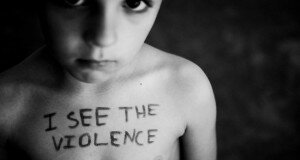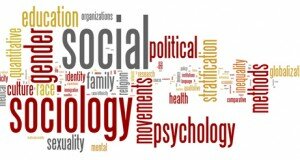One gets the sense that any attempt at defining love is limited, ultimately inadequate in its ability to encapsulate the richness of its content. Indeed, the concept of love is a nebulous one. Perhaps, this is because of the multiple manifestations in which love can be expressed and the subjective ways in which unique individuals experience it. While “love” accurately describes the relationship of a newly-wed couple, it also reflects a five year-old boy’s relationship with his grandmother, or the character of someone who cares for the hungry and the destitute, and so on. Despite the seemingly infinite expressions of love, one particular form of love has risen to prominence in present-day ‘Western’ societies: the romantic ideal. If we can believe – and to a large extent I think we can – that an individual’s relationship with and experience of a particular emotion are influenced by social forces, then the predominant discourse of romantic love today, especially amongst the youth, is shaped by popular culture.
17th century French writer, François de La Rochefoucauld, aptly elucidates this idea; he wrote: “People would never fall in love if they hadn’t heard love talked about.” The romantic ideal, as portrayed by popular culture, is a glorified version of love. The dominant discourse of love today expounds that love is an exclusive adventure between two individuals, a sensational vacation to the playgrounds of passion, a heavenly passage of warm, fuzzy feelings. Both of these helpless individuals are somehow predetermined to engage in this romance, each of them supposedly incomplete without the other.
Throughout the socialization process, and starting from a very tender age, we are imbued with specific ideas of love most of which can be associated with romance. From Cinderella to Snow White, children’s fairy tales commonly feature a princess who will be rescued and/or swept off her feet by a handsome, chivalrous and charismatic prince. Novelists, both popular and literary, have attempted – some with greater success than others – to chart the contours of the heart and experiment with the literary expression of a vastly complex emotion. Music, movies and television series all play prominent roles in exploiting the societal fascination with romance in all its incarnations. From Romeo and Juliet to Titanic to Twilight, we have taken the realm of romance beyond the confines of the human and into the fantastical world of vampires and werewolves. In fact, the 2013 American film, Warm Bodies, based on Isaac Marion’s novel of the same name, features romance amongst zombies, allegedly lifeless and brain-dead beings. This consistent cultural production enforces the notion that romance is the main and normal form of love.
This is not to say that other forms of love have ceased to exist or have been deleted from the popular imagination. They haven’t, but the rise of the romantic ideal cannot be denied; the romantic form of love is the first thing that comes to mind when we think of love. The possibility of romantic experience excites us. Other forms of love lay dormant in the recesses of our consciousness waiting to be evoked by the conditions in which such emotions naturally awaken.
Romance is a seductive ideal. And it has gone viral. The implications, however, may not be as attractive as the idea itself. Romantic love is by no means a new idea, but for it to subsume other forms of love can have adverse effects, both on individuals and the society at large.
For most people, romantic love, like many other ideals, will remain an unfulfilled desire. The premise of this form of romantic love itself is unrealistic; the notion that there is one other individual with whom conjuring a relationship will be optimal. That love is regarded as an alchemical reaction devised in the charming corridors of the cosmos makes the entire endeavor near-impossible.
People have the expectation that marriage should transpire as a romantic ride punctuated by waves of passion, crested with climaxes of bliss. The potential rigors of a relationship meant to last for life are overlooked. This seems paradoxical, as surely it is naive to expect bursts of passion or inflexions of emotion to be sustained over a long period. The initial stage of relationships – in another parlance ‘the honeymoon period’ – is the stage during which the experience is still novel and invokes passionate desire for the companionship of the other.
More often than not, however, the strain to attain a culturally defined ideal will beleaguer most, leaving them to wallow within the walls of solitude; an inability to conjure romance out of thin air will leave in many a void of angst. Loneliness has a tendency of breeding a siege mentality in individuals – particularly during adolescence, a period in which the world is as clear as an inebriated man’s stumble through a maze of smoke and mirrors.
This does not make for an emotionally healthy society. The ‘me-against-the-world’ attitude has a habit of combining wickedly with cultures of high capitalism to devastating effects. Given the state of the world we live in today, discourses of other forms of love would certainly be welcome – if not absolutely necessary.
There is an inherent irony in all this. As developed societies become increasingly capitalist and intensely rationalized, the idea of romance being elevated to the pedestal of the dominant discourse of love might seem anachronistic if not somewhat absurd. Then again, maybe, it is a telling sign; perhaps, it is the innermost irrationality of human beings calling for a final shot at life, human nature’s existential cry for enchantment in a disenchanted world.
Cite This Article
Vinay Kumar (2013). The Rise of the Romantic Ideal. The Socjourn. [https://sociology.org/the-rise-of-the-romantic-ideal/]

The Great Awakening: Concepts and Techniques for Successful Spiritual Practice
By: Dr. S.The Great Awakening: Concepts and Techniques for Successful Spiritual Practice (GA) is your key to initiation of spiritual Awakening. The book is a primer of right thinking and basic spiritual technique designed to point you in the right direction, give you the tools you need to get started, and set you on the fast path back home. The Great Awakening consists of a collection of short essays on basic spiritual topics like breathing, grounding, visualization, communicating with spirit, spiritual protection, and so on. The Great Awakening is not a long book nor a complicated book, but it is an important book. If you are going to navigate the early stages of your (voluntary or involuntary) spiritual awakening process as safely and effectively as possible, you need to know basic concepts and techniques in this book. Knowing the concepts in this book can make the difference between anxiety, confusion, pain, suffering, and even untimely death, and calm, measured advance forward towards glorious, divine, consciousness.
[ Kindle | Amazon.com | Book Finder | Download PDF | Download Kindle ]
Full Entry
 The Socjourn A New Media Journal of Sociology and Society
The Socjourn A New Media Journal of Sociology and Society



Excellent article by a talented sociologist.
I agree Kumar. For some reason we have this pressure to “be in love” and that if you don’t love someone, or are you are not married by 25 then you are a herretic, a black sheep amongst a crowd of “adults” that fall into the same pattern… become an adult, make money, have kids, die. This is no way to live; how could we possibly live if we do not go after all things of love? Compassion, love for one another, and love of dreaming.
I love in a society (US) and culture that places a negative value on you if you are a dreamer. That some how it is wrong to go after what you want in life, instead I should be an accounant or business/science/technology major in order to be successful.
To me, life is not fulfilled unless you are passionate and are chasing your dreams.
A final note, in order to truly succeed as a global society we need to see a spark in more than romantic love, rather… love for being passionate, actionable dreamers who will hurdle obstacles to achieve their dreams and bring more value to this world. For we as a human race are only as strong as our weakest link, and if we can bring everybody up, if we can bring more value to other peoples lives, then we will begin to become stronger as humans.
The question is though… how will we do this?